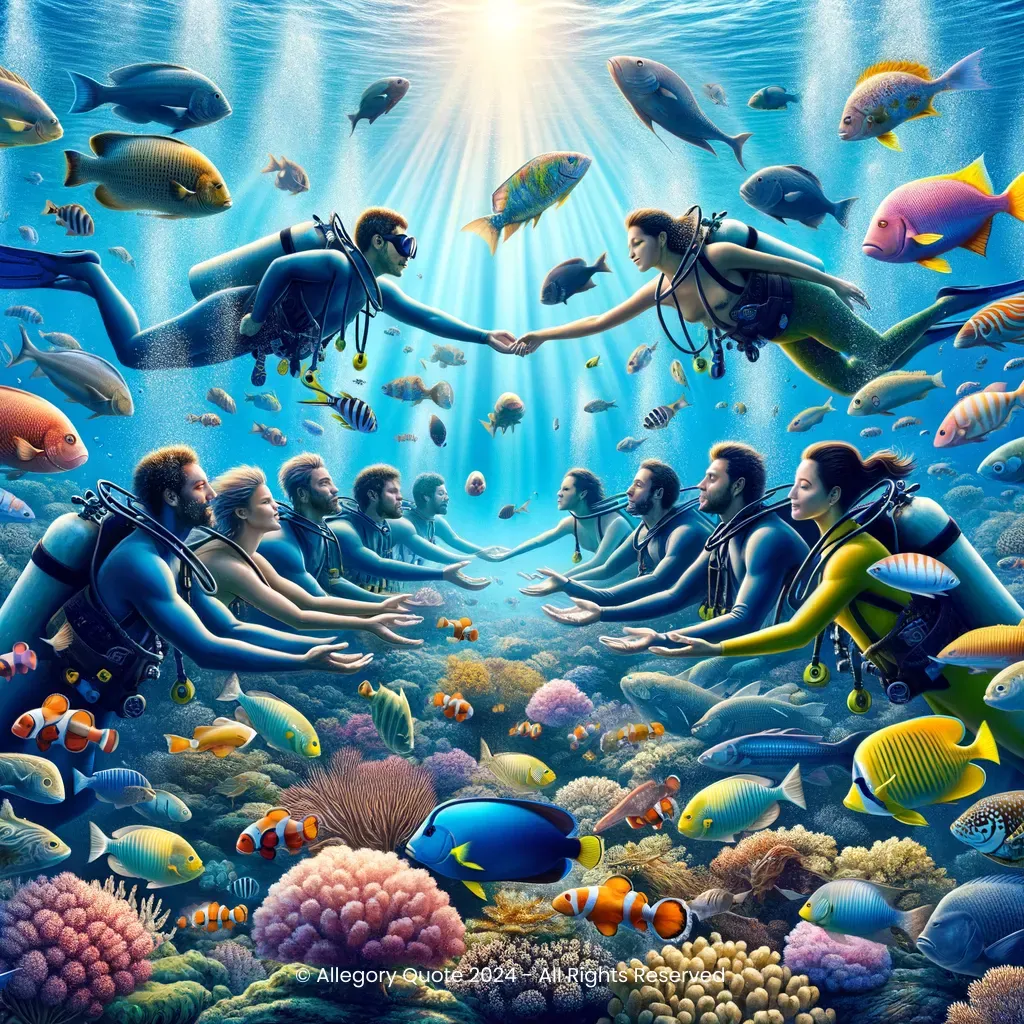I know the human being and fish can coexist peacefully

0
0
0
0
- Meaning
- The phrase "I know the human being and fish can coexist peacefully" was likely intended to address environmental concerns regarding overfishing and water pollution, reassuring voters that humans and nature could coexist without harm. However, due to its awkward construction and somewhat humorous nature, it became widely quoted and parodied.
- Allegory
- The image elements include: - **Peaceful underwater scene**: Symbolizes the idea of harmony between humans and fish. - **Diverse fish and human divers**: Represents mutual respect and coexistence. - **Vibrant coral reef**: Highlights the beauty of nature and the importance of preserving it. - **Light filtering down through the water**: Signifies hope, enlightenment, and the positive impact of sustainable living on the environment. These elements collectively convey the message of environmental harmony and the importance of responsible stewardship as humorously hinted at in Bush’s quote.
- Applicability
- This phrase, while humorous on the surface, can be applied to emphasizing the importance of sustainable living and environmental responsibility. It underscores the necessity of harmonious coexistence between humans and the natural world, advocating for practices that ensure the well-being of both.
- Impact
- The impact of this phrase was more on popular culture and political satire rather than serious policy discourse. It became a symbol of Bush's sometimes inarticulate speaking style and was frequently used in comedy sketches and discussions about political rhetoric. While it didn't inspire significant movements, it remains a memorable example of how political language can affect public perception.
- Historical Context
- The historical context of the phrase is tied to the 2000 U.S. presidential election campaign. During this period, environmental issues were a significant topic of discussion, with debates on sustainable practices, climate change, and conservation efforts being paramount. Bush's speech attempted to address these concerns by reassuring the public about their handling of environmental policies.
- Criticisms
- Criticisms revolved around the phrase being an example of Bush's verbal gaffes, often cited to portray him as less articulate. Some argued that such slips could undermine the confidence of the public in a leader's competence. However, others saw it as a humanizing aspect that added to his relatability.
- Variations
- No significant variations of this phrase in other cultures are noted, though the sentiment of coexistence between humans and nature is a common theme worldwide. Different cultures might phrase it differently but the core idea remains prevalent globally.
-

Yes we can.
-

I did not have sexual relations with that woman.
-

Love conquers all things, except poverty and toothache.
-

It is a damn poor mind indeed which can't think of at least two ways to spell any word.
-

Make America Great Again.
-

Read my lips: no new taxes.
-

The only limit to our realization of tomorrow will be our doubts of today.
-

We must adjust to changing times and still hold to unchanging principles.
-

Float like a Cadillac, sting like a Beemer.
No Comments